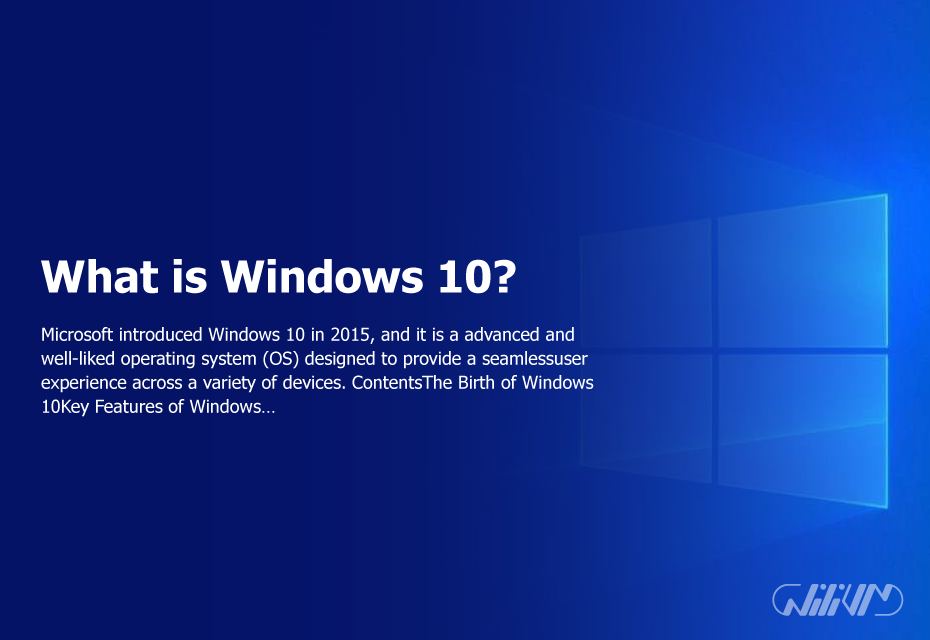What is Windows 10?
Microsoft introduced Windows 10 in 2015, and it is an advanced and well-liked operating system (OS) designed to provide a seamless user experience across a variety of devices.
The Birth of Windows 10
The Idea behind Windows 10: Windows 10 was developed with the simple but important objective of creating an operating system that would work on a variety of devices, including PCs, laptops, smartphones, and tablets.
The Launch of Windows 10: On July 29, 2015, Windows 10 was formally released, succeeding Windows 8.1.
Key Features of Windows 10
The Start Menu
The beloved Start Menu made a triumphant comeback in Windows 10, improving usability and giving seasoned Windows users a feeling of comfort.
Microsoft Edge Web Browser
Microsoft Edge, a quicker, more secure web browser designed to provide a better online experience, was released with Windows 10.
Virtual Desktops and Task View
Virtual Desktops and Task View are two of Windows 10’s standout features because they let users effectively manage their workplaces.
Cortana, Your Personal Digital Assistant
Windows 10 brought Cortana to PCs, a voice-controlled digital assistant previously exclusive to Windows phones.
Universal Apps
Universal Apps, a new kind of software that could function equally across various platforms, were launched with Windows 10.
Upgrading to Windows 10
System Requirements for Windows 10
Your computer must have a 1GHz CPU, 1GB of RAM for 32-bit or 64-bit operating systems, and 16GB or 20GB of hard disc space in order to upgrade to Windows 10.
The Process of Upgrading
Upgrading to Windows 10 is a straightforward process, you may use Microsoft’s Media Creation Tool to upgrade to Windows 10 simply.
Windows 10 Versus Other Operating Systems
Comparison with Windows 7 and 8
With a more user-friendly design, more features, and better performance than its predecessors, Windows 10 outperforms them.
Comparison with MacOS and Linux
While each operating system has advantages and disadvantages, Windows 10 stands out for being compatible with a wide range of applications and devices.
The Future of Windows 10
Even with the advent of Windows 11, Windows 10 continues to be a reliable and efficient OS, with Microsoft promising support until 2025
Discover what Windows 10 is and enhance your experience with a windows VPS. Buy windows VPS now for upgraded performance.
Conclusion
In conclusion, Windows 10 is a flexible, approachable operating system that supports a variety of devices. It continues to be a preferred option for people all around the globe because to its distinctive features and strong performance.
FAQs
What are the major differences between Windows 10 and its predecessors?
Windows 10 boasts a more intuitive interface, the return of the Start Menu, a new browser (Microsoft Edge), and Cortana, among other features.
How can I upgrade to Windows 10?
You can upgrade by purchasing a license from Microsoft or a trusted retailer, then follow the prompts for installation.
What are the system requirements for Windows 10?
The key requirements include a 1GHz processor, 1GB RAM for 32-bit (or 2GB for 64-bit), and at least 16GB (for 32-bit) or 20GB (for 64-bit) of hard disk space.
What is the future of Windows 10?
Microsoft has pledged to support Windows 10 until October 2025, meaning it will continue to receive updates and security fixes until then.







